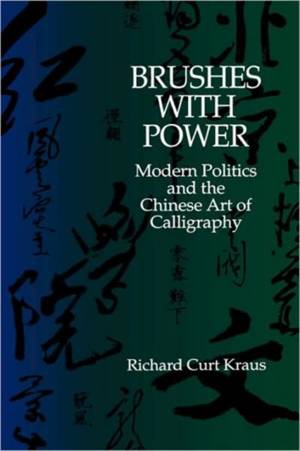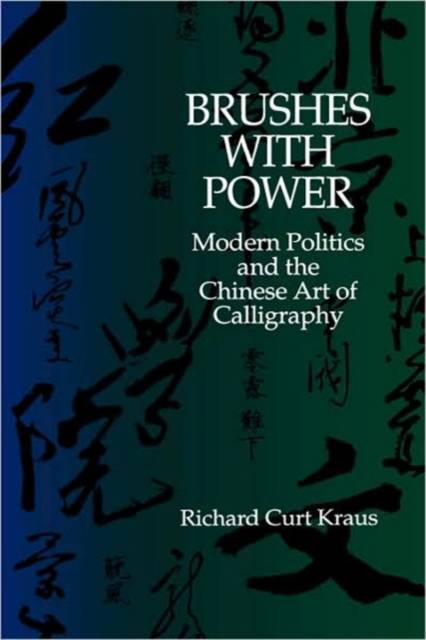
- Afhalen na 1 uur in een winkel met voorraad
- Gratis thuislevering in België vanaf € 30
- Ruim aanbod met 7 miljoen producten
- Afhalen na 1 uur in een winkel met voorraad
- Gratis thuislevering in België vanaf € 30
- Ruim aanbod met 7 miljoen producten
Zoeken
Brushes with Power

Modern Politics and the Chinese Art of Calligraphy
Richard Curt Kraus
Hardcover | Engels
€ 116,95
+ 233 punten
Prijzen
Omschrijving
Chinese calligraphy has traditionally been an emblem of the ruling class and its authority. After a century of mass revolution, what is the fate of this elite art? Richard Kraus explores the relationship beween politics and the art of writing in China today to explicate the complex relationship between tradition and modernity in Chinese culture. His study draws upon a wide range of sources, from political documents, memoirs, and interviews with Chinese intellectuals to art exhibitions and television melodramas.
Mao Zedong and other Communist leaders gave calligraphy a revolutionary role, believing that their beloved art reflected the luster of authoritative words and deeds. Calligraphy was joined with new propagandistic mass media to become less a private art and more a public performance. It provided politically engaged citizens with subtle cues to changing power relationships in the People's Republic.
Claiming neither that the Communists obliterated traditional culture nor that revolution failed to relieve the burden of China's past, this study subtly examines the changing uses of tradition in a modernizing society.
Mao Zedong and other Communist leaders gave calligraphy a revolutionary role, believing that their beloved art reflected the luster of authoritative words and deeds. Calligraphy was joined with new propagandistic mass media to become less a private art and more a public performance. It provided politically engaged citizens with subtle cues to changing power relationships in the People's Republic.
Claiming neither that the Communists obliterated traditional culture nor that revolution failed to relieve the burden of China's past, this study subtly examines the changing uses of tradition in a modernizing society.
Specificaties
Betrokkenen
- Auteur(s):
- Uitgeverij:
Inhoud
- Aantal bladzijden:
- 220
- Taal:
- Engels
Eigenschappen
- Productcode (EAN):
- 9780520072855
- Verschijningsdatum:
- 24/07/1991
- Uitvoering:
- Hardcover
- Formaat:
- Genaaid
- Afmetingen:
- 160 mm x 237 mm
- Gewicht:
- 471 g

Alleen bij Standaard Boekhandel
+ 233 punten op je klantenkaart van Standaard Boekhandel
Beoordelingen
We publiceren alleen reviews die voldoen aan de voorwaarden voor reviews. Bekijk onze voorwaarden voor reviews.













